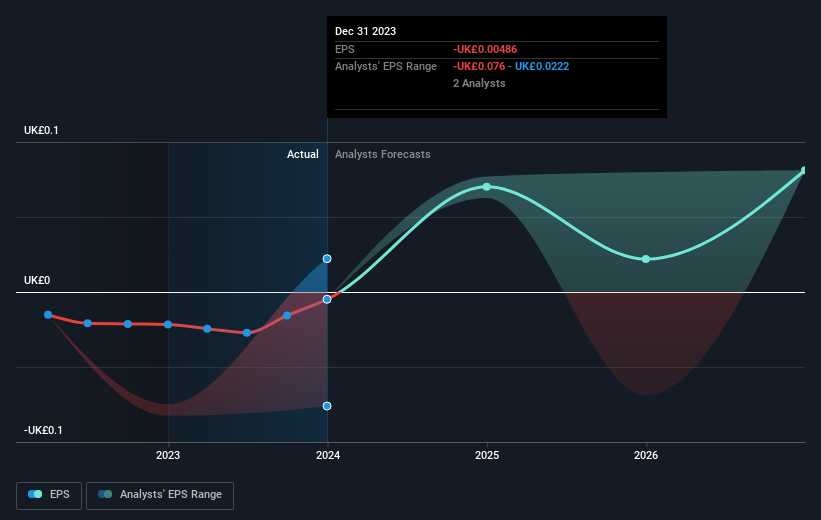Kooth plc (LON:KOO) About To Shift From Loss To Profit
We feel now is a pretty good time to analyse Kooth plc's (LON:KOO) business as it appears the company may be on the cusp of a considerable accomplishment. Kooth plc, together with its subsidiaries, provides digital mental health services to children, young people, and adults in the United Kingdom. On 31 December 2023, the UK£107m market-cap company posted a loss of UK£169k for its most recent financial year. The most pressing concern for investors is Kooth's path to profitability – when will it breakeven? In this article, we will touch on the expectations for the company's growth and when analysts expect it to become profitable.
View our latest analysis for Kooth
Kooth is bordering on breakeven, according to the 6 British Healthcare analysts. They anticipate the company to incur a final loss in 2023, before generating positive profits of UK£2.3m in 2024. So, the company is predicted to breakeven approximately 12 months from now or less. We calculated the rate at which the company must grow to meet the consensus forecasts predicting breakeven within 12 months. It turns out an average annual growth rate of 26% is expected, which is rather optimistic! Should the business grow at a slower rate, it will become profitable at a later date than expected.
Given this is a high-level overview, we won’t go into details of Kooth's upcoming projects, but, bear in mind that typically a high forecast growth rate is not unusual for a company that is currently undergoing an investment period.
Before we wrap up, there’s one aspect worth mentioning. Kooth currently has no debt on its balance sheet, which is quite unusual for a cash-burning growth company, which usually has a high level of debt relative to its equity. This means that the company has been operating purely on its equity investment and has no debt burden. This aspect reduces the risk around investing in the loss-making company.
Next Steps:
There are key fundamentals of Kooth which are not covered in this article, but we must stress again that this is merely a basic overview. For a more comprehensive look at Kooth, take a look at Kooth's company page on Simply Wall St. We've also compiled a list of important factors you should further examine:
Valuation: What is Kooth worth today? Has the future growth potential already been factored into the price? The intrinsic value infographic in our free research report helps visualize whether Kooth is currently mispriced by the market.
Management Team: An experienced management team on the helm increases our confidence in the business – take a look at who sits on Kooth’s board and the CEO’s background.
Other High-Performing Stocks: Are there other stocks that provide better prospects with proven track records? Explore our free list of these great stocks here.
Have feedback on this article? Concerned about the content? Get in touch with us directly. Alternatively, email editorial-team (at) simplywallst.com.
This article by Simply Wall St is general in nature. We provide commentary based on historical data and analyst forecasts only using an unbiased methodology and our articles are not intended to be financial advice. It does not constitute a recommendation to buy or sell any stock, and does not take account of your objectives, or your financial situation. We aim to bring you long-term focused analysis driven by fundamental data. Note that our analysis may not factor in the latest price-sensitive company announcements or qualitative material. Simply Wall St has no position in any stocks mentioned.
Have feedback on this article? Concerned about the content? Get in touch with us directly. Alternatively, email editorial-team@simplywallst.com

 Yahoo Finance
Yahoo Finance 
